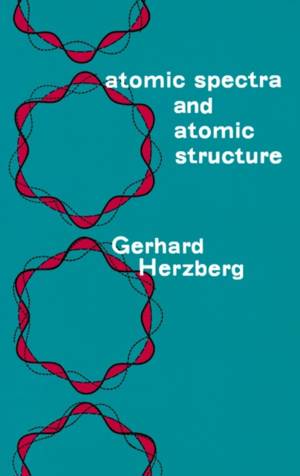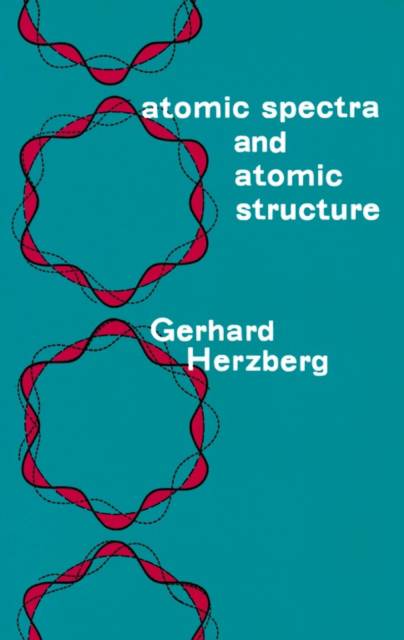
- Retrait gratuit dans votre magasin Club
- 7.000.000 titres dans notre catalogue
- Payer en toute sécurité
- Toujours un magasin près de chez vous
- Retrait gratuit dans votre magasin Club
- 7.000.0000 titres dans notre catalogue
- Payer en toute sécurité
- Toujours un magasin près de chez vous
Description
This book has long been recognized as one of the most satisfactory introductions to atomic spectra and their relationship to atomic structure. It is especially valuable to physics and physical chemists who are specialists in other fields, but require a comprehensive basic knowledge of atomic spectra because of their significance to their own work.
Treatment throughout is physical rather than mathematical, with experiment serving as a starting point for theory. Complex mathematics are avoided; results of calculation are accepted without proof, while references are given to places where detailed proofs may be found.
Partial Contents: Simplest Line Spectra and the Elements of Atomic Theory: 1. Empirical hydrogen terms. 2. Bohr theory of Balmer terms. 3. Energy level diagrams. 4. Wave mechanics, quantum mechanics. 5. Alkali spectra. 6. Spectrum of helium and alkaline earths. Multiplet Structure of Line Spectra and Electron Spin: 1. Empirical facts, their formal explanation. 2. Physical explanation of quantum numbers. 3. Space quantization (Zeeman effect, Stark effect). Building-up Principle and Periodic System of the Elements: 1. Pauli principle. 2. Determination of term type from electron configuration. 3. Periodic system of the elements. Finer Details of Atomic Spectra: 1. Intensities of spectral lines. 2. Series limits for outer electrons. 3. Coupling. 4. The interval rule. Hyperfine Structure of Spectral Lines: Isotope effect, nuclear spin. Experimental Results and Applications: 1. Energy level diagrams and ionization potentials. 2. Magnetic moment and susceptibility. 3. Chemical applications. 80 illustrations.
Spécifications
Parties prenantes
- Auteur(s) :
- Editeur:
Contenu
- Nombre de pages :
- 288
- Langue:
- Anglais
- Collection :
Caractéristiques
- EAN:
- 9780486601151
- Date de parution :
- 19-08-10
- Format:
- Livre broché
- Format numérique:
- Trade paperback (VS)
- Dimensions :
- 137 mm x 205 mm
- Poids :
- 285 g

Les avis
Nous publions uniquement les avis qui respectent les conditions requises. Consultez nos conditions pour les avis.






